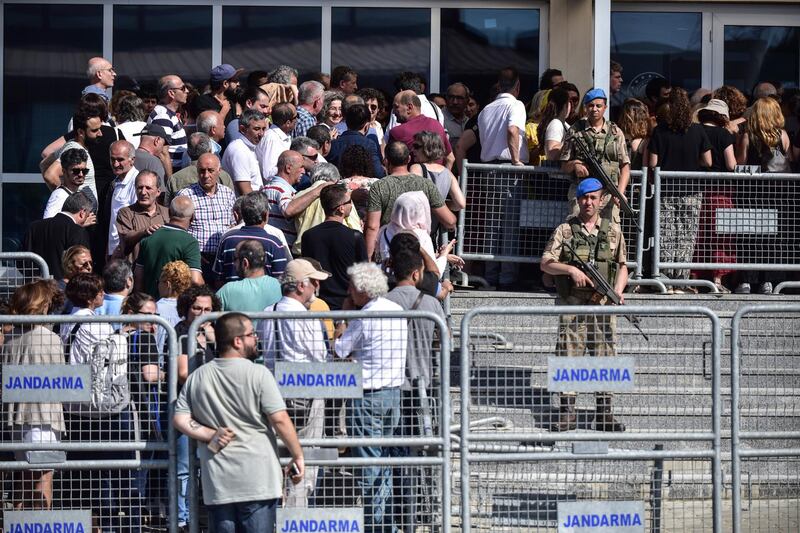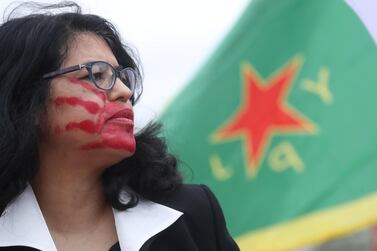A renowned Turkish philanthropist and rights advocate accused of trying to overthrow the government, was kept in custody at his latest court hearing yesterday after more than 700 days in detention.
Osman Kavala is accused of orchestrating the Gezi Park mass protests in 2013 in a trial described as absurd by rights groups.
The court ruled that Mr Kavala will remain in jail until the next hearing on December 24, according to support group We Defend Gezi.
Rights groups say the protests had no leadership and that Mr Kavala is being targeted because he supports democracy and the rule of law.
Prosecutors claim the Gezi protests were organised from outside the country to "bring Turkey to its knees".
"In 635 pages of the indictment there is no evidence of his involvement in a conspiracy or organisation of Gezi Park uprisings," Murat Celikkan, of Turkey's Human Rights Association, said last week.
“They want to show that they can touch anyone ... It’s fear politics,” he said.
Mr Kavala is one of 16 Turkish business figures, academics and artists who face life imprisonment if they are convicted.
Mr Celikkan said the lead judge had been removed from the case after twice voting for Mr Kavala to be freed
Mr Kavala has been in jail since November 2017, and has become a symbol of what activists say is the deliberate targeting of civil society.
He was among tens of thousands of people rounded up after an attempted coup in July 2016.
A respected figure in intellectual circles, Mr Kavala is chairman of the Anatolian Culture Foundation, which seeks to bridge ethnic and regional divides through art, including with neighbouring Armenia, with which Turkey has no diplomatic ties.
"He's a bridge-builder, reaching different parts of the country. That alone breaks taboos in Turkey. He's a great advocate of the rule of law and a democratic Turkey," said Emma Sinclair-Webb, of Human Rights Watch.







